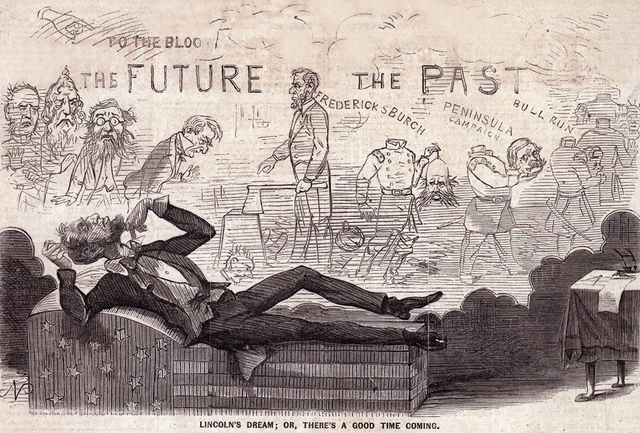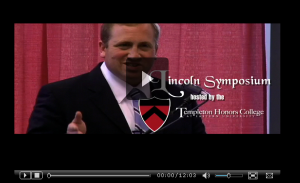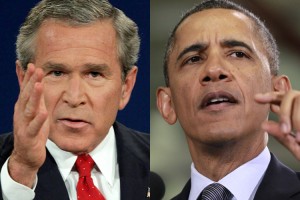Americans routinely invoke the “separation of powers” when describing constitutional authority, but that phrase has been misunderstood, particularly in the context of national security. The phrase “separation of powers” itself never appears in the Constitution. Instead, over the years, we have translated Montesquieu’s great enlightenment principle in ways that political scientist Richard Neustadt famously summarized as “separated institutions sharing powers.”
This concept of shared (and thus invariably contested) powers certainly seems to describe the evolution of war powers in American history. The constitutional text on this issue is just vague enough to allow for plenty of overlap and interpretive conflict. The Framers openly debated allowing Congress the power to “make war,” but instead settled on “declare war” in order to give the president flexibility to “repel sudden attacks.” They prohibited states from attempting to “engage in war” on their own, but also allowed them discretion in cases of invasion or “imminent Danger” to act without federal authorization. The commander-in-chief clause and the presidential oath in Article II both offer platitudes more than prescriptions for exercising military power.
Critics of what is now often labeled the “imperial presidency” are thus often especially unimpressed by Lincoln’s invocation of broad executive power, or what they dismiss as his appeals to an “emergency constitution,” and the inevitable claims of necessity that surrounded his most aggressive actions. These have become all-too familiar battlegrounds in the contest over separation of powers issues during a modern age dominated by the growing national security state. But it is important to remember that nineteenth-century America was a much different place with a far weaker government apparatus and that the Civil War was a uniquely dangerous conflict. It is also critical to acknowledge that despite his sweeping claims for executive action, especially for his own initiative, Lincoln never envisioned that his wartime decisions would go unchallenged. In other words, Lincoln quite consciously accepted a chronology of powers.
Lincoln’s Example
Consider Lincoln’s famous special message to Congress on July 4, 1861. By taking his dispute with Chief Justice Taney to the Congress, Lincoln was disregarding an order from the nation’s leading jurist, but he wasn’t asserting any plenary or full powers. Rather, he was appealing to Congress for a response to his decisions. For Lincoln, this was the only sensible course. The president acted. The Congress needed to react. Then the courts could review. The executive, he wrote, “has, so far, done what he has deemed his duty,” adding pointedly, “You will now, according to your own judgment, perform yours.” Later, when the issue of the president’s actions at the outset of the war reached the full Supreme Court in the form of The Prize Cases (1863), with the cantankerous Taney still sitting as Chief Justice, Lincoln and his administration appeared ready to accept the verdict of the court, whatever it may have been.
In other words, as commander-in-chief, Lincoln engaged in his own parsing of the great constitutional principle of “separation of powers.” He ordered them in time. This is what we mean by the phrase “chronology of powers” –also one that is not in the Constitution, and not even, in fact, uttered by President Lincoln. Yet is a doctrine arguably inherent throughout his wartime actions.
In April 1861, Lincoln expressed no doubt that secession was rebellion and that ordinary criminal proceedings were inadequate to stop the Confederates. Since Congress was out of session, he took action, authorizing the use of military force and suspending habeas corpus, as the Constitution provides, “when in cases of rebellion or invasion the public safety may require it.” Not everyone agreed. The president’s toughest critic was Chief Justice Roger B. Taney, who warned publicly that Lincoln had usurped what should have been congressional war powers on a mere “pretext” that left the American people “no longer living under a Government of laws.” Unbowed, the president took this argument to Congress. In a message from July 4, 1861, Lincoln recounted his decision-making process in painstaking narrative detail, concluding that he had “so far, done what he has deemed his duty.” “You will now,” he added, “according to your own judgment, perform yours.”
Congress did perform its duty, in fits and starts, and sometimes in ways that hampered the president. Yet throughout the war, Lincoln accepted congressional oversight. Whatever secrets he kept from them—such as his plans for emancipation—he kept quiet only for a matter of weeks or months, not years, and never through an election cycle. Nor was this a battle played out only behind closed doors. Lincoln went public frequently with plain-spoken arguments on behalf of his administration’s most controversial policies. He engaged his critics. When questioned over the source of authority for his most sweeping executive actions, Lincoln responded, “I think the constitution invests its commander-in-chief, with the law of war, in time of war.” When opponents charged that such reasoning represented a first step towards tyranny, Lincoln fought back with metaphors, claiming that just because “a particular drug” was “not good food” for a healthy man, it did not mean that it was “not good medicine for a sick man.”
He also accepted judicial review of his initial war-making efforts in the only notable Supreme Court case of the conflict, The Prize Cases (1863), which ended up approving his actions, over Chief Justice Taney’s bitter objections. The majority decided the president was “bound to meet” the grave national security threat “without waiting for Congress to baptize it with a name.” Finally, Lincoln never canceled a single election, even in the summer of 1864, when nearly everyone believed his reelection effort was doomed. “We cannot have free government without elections,” he stated simply.
This is the chronology of powers. Lincoln understood that presidents must sometimes assert practically unlimited initiative in the name of public safety. Yet he conceded what advocates for a strong presidency often do not—that with such great initiative comes the need for even greater accountability. Only with true oversight can Congress react in ways that limit executive actions during periods of crisis. This is essentially a political process—a series of arguments about policy—but after this political contest has been fully joined, then the federal courts must also apply legal standards in order to review legitimate claims of individual harm. Most important, however, the people themselves must eventually decide what rights they are willing to sacrifice in the name of national security—and to whom. Regular elections are the ultimate American bulwark against wartime tyranny.
- Ex parte Merryman (May 25, 1861) —“pretext”
- Message to Congress (July 4, 1861) —“duty”
- Prize Cases (March 10, 1863) —“bound to meet”
- Letter to Erastus Corning (June 12, 1863) —“not good food”
- Letter to James Conkling (August 26, 1863) —“law of war”
- Response to Serenade (November 10, 1864) —“free government”
- Lecture on “chronology of powers” (60 min total) —Video 1, Video 2, Video 3, Video 4
Modern Debates
Such a model offers much-needed perspective but no easy answers. Nobody knows what Lincoln would do today. In the midst of the Civil War, he could appear unyielding. During one of his more plain-spoken moments, he asserted that the government should have “seized and held” Robert E. Lee and other high-ranking secessionists even before they had committed any crimes, because they “were nearly as well known to be traitors then as now.”
Would he have tossed them into Gitmo or authorized drone strikes against them if he had those capabilities? Maybe. But maybe not. Despite all of his tough talk, Lincoln was also committed to upholding international law, or what he called the “law of war.” Surprisingly, perhaps, Americans in those days seemed to take international law more seriously than we do. The Supreme Court cited international legal theory in The Prize Cases, and the Lincoln Administration issued its own handbook on international laws of war, known as the Lieber Code, which later became a significant precedent for The Hague and Geneva conventions of war. You can read more about those issues at our next pathway on the Laws of War.
But, in other words, like everybody else, Lincoln found it challenging to navigate a proper balance between liberty and security. That did not stop him, however, from making tough decisions on his own initiative and, more important, from then making his case directly to the American people. This is an example that should inspire all of us –but especially our national leaders– in the present day.
In 2013, the “Understanding Lincoln” course convened a panel that ranged widely over the question of how Lincoln’s legacy has been used –and sometimes abused– by modern-day politicians. In this 10-minute excerpt from the exchange (which was televised by C-SPAN), panelists James Swanson, Michael Lind, Craig Symonds and Richard Norton Smith engage in a fascinating and sometimes thoughtful exchange over Lincoln’s approach to war powers and whether or not it is relevant to think of them as an illustration of a “chronology of powers” approach. Brief profiles of the panelists are available here.



